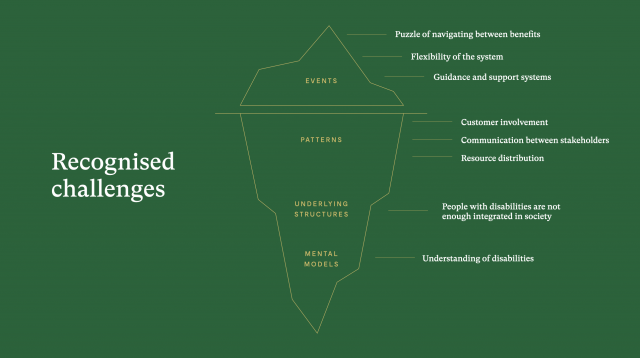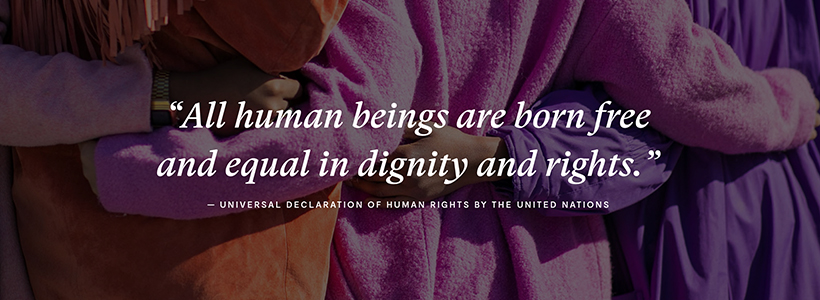This blog post reports on work-in-progress within the DfG course! The post are written by the group dealing with the brief on ‘Pilot project for Personal Budgeting Model’, provided by the Ministry of Social Affairs, Finnish Institute for Health and Welfare (THL), and the Social Insurance Institution of Finland (Kela) in collaboration with the ORSI project.
—
Group 1B: Helena Eharand from International Design Business Management (BIZ) program, Lucia Llerena from International Design Business Management (ARTS) program, Matleena Inget from the Creative Sustainability (BIZ) program, and Ruta Jumite from Creative Sustainability (ARTS) program.
For the last four weeks, our team has gotten the opportunity to work with a brief focusing on the development of a personal budgeting model, which is aiming to provide a more inclusive and flexible service offering for people with disabilities. Thanks to this, we have had a chance to have deep conversations with people with disabilities, their families, personal assistants, associations, as well as with social workers and other types of public servants.
While analysing the existing system we came across many important challenges, and to understand the relations and levels of these challenges we used the systems thinking tool “Iceberg Model”. The method helped us not to see only that all the challenges are somehow related, but also that interventions in deeper levels might have a broader influence. Of course, it is known that the deepest leverage points are the hardest to address by design because they are mental models and paradigms of society. However, the model helped us to frame the core challenges and our unique perspective on them.

Our understanding of disabilities is inadequate.
“Many times, I think, disabled people are also told ever since we are little, that there is something wrong with us. That we should just shut up, and be quiet, and be happy about the services we get because we are wasting the society’s money…”
— interview participant
With the help of analysis, we understood that one of the ingrained behaviours is that people with disabilities are consistently not integrated into society. Instead of integrating people with disabilities into society by empowering them as experts in their own lives, they are often treated as customers of the system, or even as a “burden”. As a result, people with disabilities feel like they should be grateful for the help they get even though it sometimes doesn’t even meet their basic human rights. 
Thus, instead of believing that people with disabilities must adapt to the current system, we should be making sure that the social system meets the needs of everyone. For this, we need a paradigm shift from a traditional charity-oriented, medical-based approach, to one based on human rights.
By pinpointing these challenges and looking at how this is connected with the personal budgeting model, we realized that whatever we do with this project, we need to emphasize the co-creation with people with disabilities, empower them to fight for their rights, and take all the complexities and ranges of disabilities into account. We are aware that these challenges are not simple, but we believe that, as designers, we have the ability to make precise interventions in the system that will make us reframe and rethink disabilities and offer services that are designed by the people with disabilities themselves.
Further reading:
The United Nations. (1948). Universal Declaration of Human Rights.


Hi! I would love to hear more about your project – is there any way I can contact you?
Hi! Happy to hear from you! If you are interested in our projects and want to know more, please contact Nuria at nuria.solsona@aalto.fi